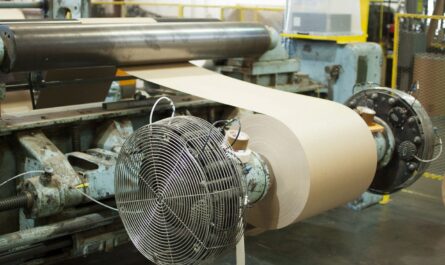Pallets have been an integral part of the logistics and supply chain industry for a long time helping in the easy movement and transportation of goods. Though India has traditionally lagged other developed nations in pallet usage, recent years have seen significant growth and emerging trends in pallet utilization across different industries in the country. This article explores some of the major trends that are propelling India’s pallet market and infrastructure.
Rise of E-commerce
The booming e-commerce sector in India has been a major driver of increased pallet demand over the last few years. With online retail projected to grow at over 27% annually, e-commerce companies are ramping up their logistics and warehousing capabilities significantly. (200 words) Pallets allow for efficient storage and movement of inventory within massive fulfillment centers. They also improve handling and protect shipped goods. Major e-tailers like Flipkart, Amazon and others have upscaled palletized shipping. Their supplier networks too are standardizing on palletized loads. This has created a vibrant market for specialized e-commerce pallets that can withstand automated sorting and are barcode compliant.
Growing Organized Retail
Modern retail has grown in double digits since 2010 in India. Large format stores, supermarkets and hypermarkets strongly rely on streamlined inbound and internal logistics. Pallets are indispensable to manage high volumes and fulfill just-in-time requirements. Most big retail chains now mandate palletized delivery from all vendors. This ensures uniformity, visibility and automation readiness across the supply chain. It has propelled demand for specialized retail pallets optimized for racking, stacking and transport. Key segments driving pallet adoption include food & grocery, consumer goods, apparel and electronics.
Manufacturing Shift to Pallets
Manufacturing has traditionally been a late adopter of pallets in India but is rapidly recognizing the benefits of palletization.
Global OEMs setting up factories in India follow international palletized material management standards. Domestic automotive, machinery, pharma and fabric industries are also moving from arbitrary loading to palletization for increased throughput, visibility and safety. Sectors like steel have customized heavy-duty Pallets. Standardized pallet sizes, grades and specs are now references in industrial tenders and purchase orders across regions. This is a huge untapped market that will catalyze pallet pool operations.
Technological Advancements
Technology modernization across supply chains has augmented the case for pallets in India. Warehouse Management Systems (WMS), Material Handling Equipment (MHE) and Automated Storage & Retrieval Systems (ASRS) require compatible unit loads for optimal functioning. Additionally, Real-Time Location Systems (RTLS), pick to light, voice picking etc rely on standardized platform base units like pallets to coordinate movements. Pallets compliant to technologies facilitate automation integration. Indigenous start-ups are driving innovations like smart pallets integrated with IoT/RFID/sensors to enable greater traceability, analytics and utilization.
Pallet Pooling Paves the Way
Till recent years, pallets were viewed mainly as disposables in India. But evolving user needs and industry maturity are making pallet pooling an attractive proposition.
Major economies adopt pooling for its cost, sustainability and performance advantages over one-way pallet systems. Domestic leading companies are now venturing into pallet pooling and rental models. National-level pooling with territorial networks, common specs and deposit-retrieval systems would streamline material flow optimization across sectors. It will cut inventory and waste. Global poolers are also evaluating Indian partnerships and acquisitions to tap the market potential. Strong policy support through initiatives like establishing pallet associations and making palletized shipment mandatory can significantly accelerate pooling market growth.
Standardization Key to Unlocking Value
Lack of standardized pallet sizes is a long-standing issue that impacts efficiency and interchangeability.
India’s diverse freight ecosystem requires a coherent framework of modular pallet sizes catering to all industries and technologies. The Bureau of Indian Standards (BIS) has recently formulated comprehensive pallet standards for dimensions and load bearing classification. Compliance and adherence will address current fragmentation driving up costs. It will facilitate interchange of loads between transport modes and supply chain partners. Technology players too are aligning their solutions basis reference standards. This will streamline integration of pallets within modern, automated supply chains.



